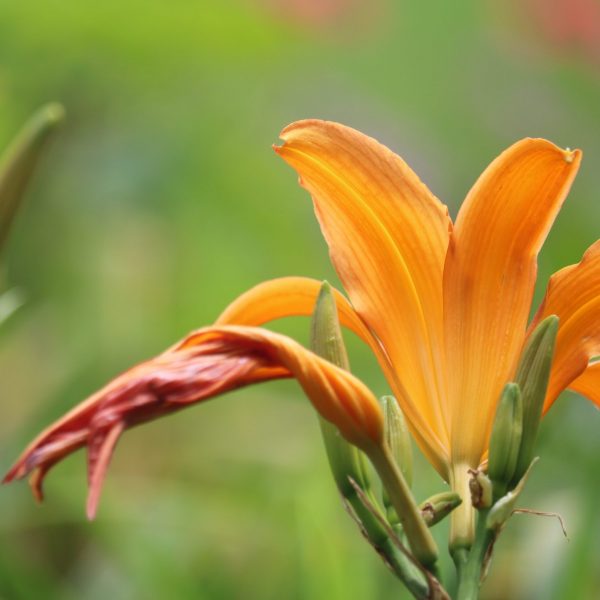PCOS (polycystic ovary syndrome) is a leading fertility problem for all women of reproductive age, regardless of ethnicity. Acknowledging ethnicity is important because new research shows women in India may be especially affected. Let’s talk about why this could be happening along with recommendations for a PCOS-friendly Indian diet and herbs.
The research: A 2017 study from PCOS Society reveals that one in ten women in India has PCOS; of those, six are teenagers.
In actuality, these numbers could be higher. Pathology specialists at Metropolis Healthcare Ltd, a multinational chain of pathology laboratories throughout India, took testosterone samples of 27,411 Indian women and found that one in five had risk factors for PCOS, including elevated levels of testosterone. In East India, the number was even higher at one in four.
Why the Increase of PCOS for Women of India?
For any woman diagnosed with PCOS, it is believed that a combination of heredity, diet and lifestyle factors are to blame. This is true of the PCOS increase in India as well. Moreover, many women living in India follow a vegetarian diet. A balanced vegetarian diet offers many health benefits, yet an unbalanced vegetarian diet can be problematic for women with PCOS.
It is common for many PCOS clients we work with to rely heavily on refined carbohydrates (white rice, breads, pasta and potatoes) and high-sugar foods (baked goods, dairy products or sweet teas), even for those on traditional Indian diets. An excess of these foods can trigger hormone imbalances that lead to PCOS, insulin resistance, and weight gain. The effect is worsened if the woman doesn’t get much exercise either.
The Place to Start: Diet, Exercise, Herbs & Supplements!
Having PCOS means the body is out of balance, especially when it comes to hormones and metabolism, and for many insulin balance (overproduction). Education on PCOS is key to managing it!
Your go-to guide needs to be:
How To Reduce Damaging Effects of PCOS on Fertility Through Diet and Herbs
Tips for a PCOS-Friendly Indian Diet
1. First, don’t skip meals. This is one of the worst things you can do with PCOS. Consider eating 5 small meals a day separated by 2 to 3 hours, with no snacking in between. This encourages normal metabolism, a balanced insulin response throughout the day and hormonal balance. Always pair any carbohydrate with a protein to maintain normal blood sugar levels.
2. Second, think food for PCOS. Make sure you’re eating from each food group every day: high-quality protein (plant protein for vegetarians), low-glycemic fruits if insulin resistance is a concern, all vegetables, essential fats and unprocessed, whole grains.
3. Work on balance. A PCOS Diet should balance daily protein intake with an equal or lesser amount of complex carbohydrates. Choose quality protein sources. A few good vegetarian choices: organic eggs; organic yogurt, lassi or kefir (without added sugars); dhaal, lentils, beans, chickpeas; nuts, seeds; spirulina, mushrooms, or plant protein powders.
4. Avoid refined carbohydrates and sugar. These foods escalate PCOS symptoms and stress the immune system. Focus on complex, “slow” carbohydrates from unprocessed, whole grains. Try brown rice or a brown rice/quinoa blend as a substitute for white rice in traditional Indian dishes. Use spices for flavor instead of added sugar.
5. Boost fruit and veggie intake. Fresh PCOS Smoothies and salads are excellent on a Fertility Diet. If you prefer warm food, smoothies can be made with room temperature produce and liquid (they do not have to be frozen), or add lightly cooked or steamed veggies to soups, curries, stews, or wraps instead. Other tips for fruit: stewed fruits (no added sugar), warmed mango or papaya, etc.
Exercise Regularly!
Moderate-level intensity exercise is suggested, 4-5 times weekly. Choose activities you like and stick with them!
Regular exercise improves blood sugar levels, insulin response and promotes healthy weight management. Low impact exercise like long walks, leisurely bike rides, swimming, light jogs, and Fertility Yoga are especially good.
Consider Herbs & Supplements
New 2017 research in the journal Phytotherapy Research finds PCOS responds better to lifestyle changes along with herbal remedies rather than lifestyle changes alone.
- Herbs like Vitex (Vitex agnus-castus), White Peony (Paeonia officinalis) and Saw Palmetto (Serenoa repens) help regulate the menstrual cycle and improve hormone balance. Harmonize Formula helps soothe PCOS symptoms, support a normal menstrual cycle, and can be taken all month long.
- The B vitamin Myoinositol has been found to lower testosterone levels, improve the body’s ability to ovulate, and help the body utilize insulin properly. Suggested dosage: two to four, 500 mg capsules daily as needed.
Finding PCOS Relief Wherever You Are
While this article focuses on women in India, PCOS is really a worldwide problem. If you’re suffering from PCOS, a natural approach may make all the difference. While drugs like Metformin can be useful, they aren’t always necessary. Most women thrive on a PCOS diet and regular exercise, along with the right herbs and supplements.
Resources for learning more:
10 Fertility Diet Tips for Vegetarians and Vegans
Ayurvedic Approaches to Fertility
Fortify Your Fertility Diet & Smoothies with Plant Protein Powder
- Metropolis: The Pathology Specialist [Internet]. India: Metropolis India; c 2014–2015. 1 in 5 women affected by PCOS: Metropolis Study; 6th January, 2016 [cited on 7th, September, 2016]. Retrieved from: http://blog.metropolisindia.com/1-in-5-women-affected-by-pcos-metropolis-study/
- Shekokar, S.P. (2017, April). Why PCOS IS On The Rise In Indian Women. Retrieved from: https://www.dailyo.in/variety/polycystic-ovary-syndrome-womens-health/story/1/16785.html
- Of Every 10 Women with PCOS, Six Are Teenagers. (2018, Dec.). Retrieved from: https://www.msn.com/en-in/news/other/of-every-10-women-with-pcos-six-are-teenagers/ar-BBNfDFr
- Simans, S.M. et al. (2014, Dec.). Epidemiology, diagnosis, and management of polycystic ovary syndrome. Journal of Clinical Epidemiology; 2014; 6: 1–13. Retrieved from: https://www.ncbi.nlm.nih.gov/pmc/articles/PMC3872139/
- Arentz, S., Smith, C.A., Abbott, J., Fahey, P., Cheema, B.S. et al. (2017, Sept.). Combined Lifestyle and Herbal Medicine in Overweight Women with Polycystic Ovary Syndrome. Phytotherapy Research. Vol. 31, Issue 9, pp. 1330-1340. https://doi.org/10.1002/ptr.5858. Retrieved from http://onlinelibrary.wiley.com/doi/10.1002/ptr.5858/full





